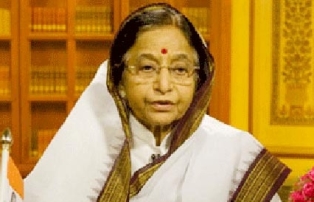
Belgaum (Karnakata), June 23: A day after TOI reported that President Pratibha Patil had commuted the death sentences of 35 convicts to life in prison, it came to light on Friday that one of the beneficiaries of her mercy died almost five years ago.
Bandu Tidke's sentence for the rape and murder of a 16-year-old girl came from the President's office on June 2. It has raised doubts about whether the clemency decisions — for many convicted of murder and rape — on the advice of the Union home ministry were based on correct information or taken in haste.
In Tidke's case, either the state jail officials or Karnataka's home department and subsequently the Union home ministry had not informed the President's office about his death on October 18, 2007. Tidke was 31 years old and HIV-positive.
Sources in the state prisons department said Tidke's file had been moved to the Centre two to three years ago. Prisons minister A Narayanaswamy, however, said, "It takes some time for the President to consider after a file is moved. I think the file in this case was moved when the convict was alive."
Tidke was arrested for rape and murder in 2002. In 2005, he was given the death sentence by the Bagalkot district court. Since November 30, 2005, he was lodged in the Hindalga Jail in Belgaum.
According to police files, Tidke, a sugarcane cutter from Beed district in Maharashtra, migrated in 2002 to Bagalkot in Karnataka where he posed as a swamiji and stayed at a local mutt. That year, he dragged a 16-year-old girl from a nearby school to his room, raped and murdered her. He left the body there and escaped to Shirdi where he was arrested.
Tidke appealed in the high court in 2006 but the court turned down his plea. Justices S R Bannurmath and N Ananda described him "like a devil in the garb of a swami". He then sent a mercy plea to the President.
Five years too late
2002: Bandu Baburao Tidke, a sugarcane cutter from Beed district of Maharashtra migrates to Bagalkot in Karnataka. Dresses up like a swamiji and lives in a mutt. Drags a 16-year-old schoolgirl to the mutt, rapes and murders her. Flees to Shirdi where he is arrested.
2005: Bagalkot court sentences Tidke to death. Sent to Hindalga Jail in Belgaum.
2006: Tidke appeals to high court against death sentence, but court turns petition. Tidke found to be HIV positive.
October 18, 2007: Tidke dies in Belgaum government hospital.
June 2, 2012: President Pratibha Patil commutes long-dead Tidke's death sentence to life term.





Comments
Add new comment